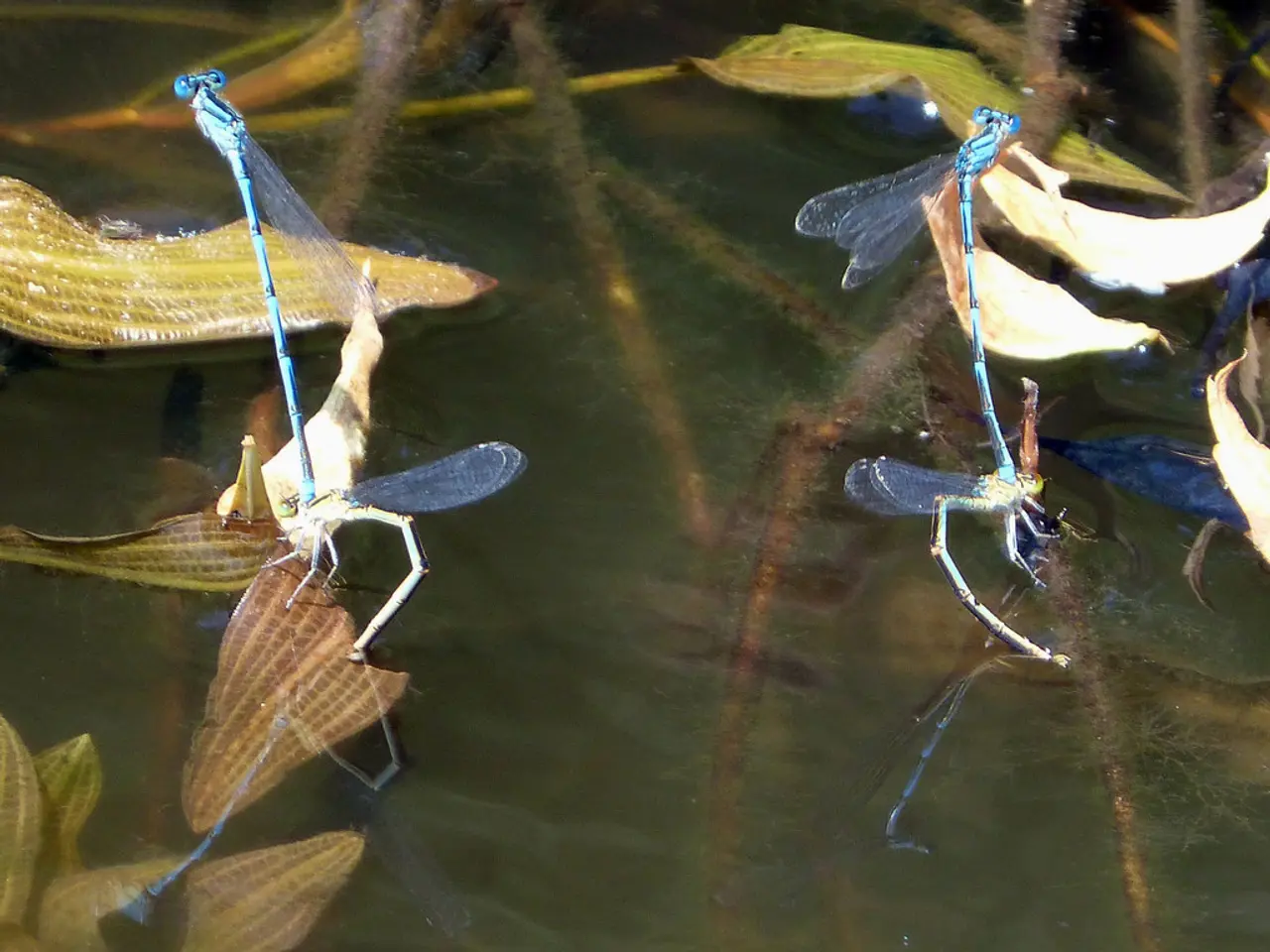Land-based insect populations are experiencing a decline, while their water-dwelling counterparts are thriving, according to a recent study.
In a study published in the prestigious journal Science, researchers have found a significant association between insect declines and habitat loss, particularly due to urbanization. This groundbreaking study, part of an investigative series by Mongabay titled "The Great Insect Dying," highlights the alarming trend of insect population decreases worldwide.
The study, which analyzed data from over 1600 sites globally, revealed a yearly decrease of 0.92% in insect populations on land. However, interestingly, the numbers of insects living in freshwater habitats are increasing by about 1.08% per year.
The researchers, primarily based in Germany, collected most of their data from protected natural areas in North Rhine-Westphalia, Rhineland-Palatinate, and Brandenburg. They used insect traps at these sites to measure biomass and population changes. Over a third of the data came from protected sites, with highly disturbed sites being underrepresented.
While the findings are concerning, it's essential to understand the complexities of these trends, species by species and site by site, for effective conservation management. Ann Swengel, a co-author of the study, emphasizes this point, stating that although they've observed decline on many protected sites, they've also observed sites where butterflies are continuing to do well.
Other recent studies have found insect populations declining at rates of 3% to 6% per year. Fewer insects appear to be splattered on windshields now compared to a few decades ago, a phenomenon known as the "windscreen phenomenon." In the UK, citizen science insect research found that 50% fewer insects were squashed on license plates of cars in 2019 than in 2004.
Scientists from around the world have expressed deep concerns about global insect declines. They warn that we are pushing many ecosystems beyond the point of recovery. Insects provide irreplaceable services, and urgent action must be taken to save both ecosystems and humanity, according to these scientists.
The trend is strongest in the Western U.S. and Northern Europe, where scientists believe clean water initiatives and anti-pollution legislation may be responsible for the positive trends in freshwater habitats. Insects fared better in areas least impacted by humans.
This article was originally published on Mongabay and is republished here as part of an editorial partnership with our website. It underscores the urgent need for conservation efforts to protect our planet's insect populations and the crucial role they play in maintaining global ecosystems.
Read also:
- Peptide YY (PYY): Exploring its Role in Appetite Suppression, Intestinal Health, and Cognitive Links
- Toddler Health: Rotavirus Signs, Origins, and Potential Complications
- Digestive issues and heart discomfort: Root causes and associated health conditions
- House Infernos: Deadly Hazards Surpassing the Flames








